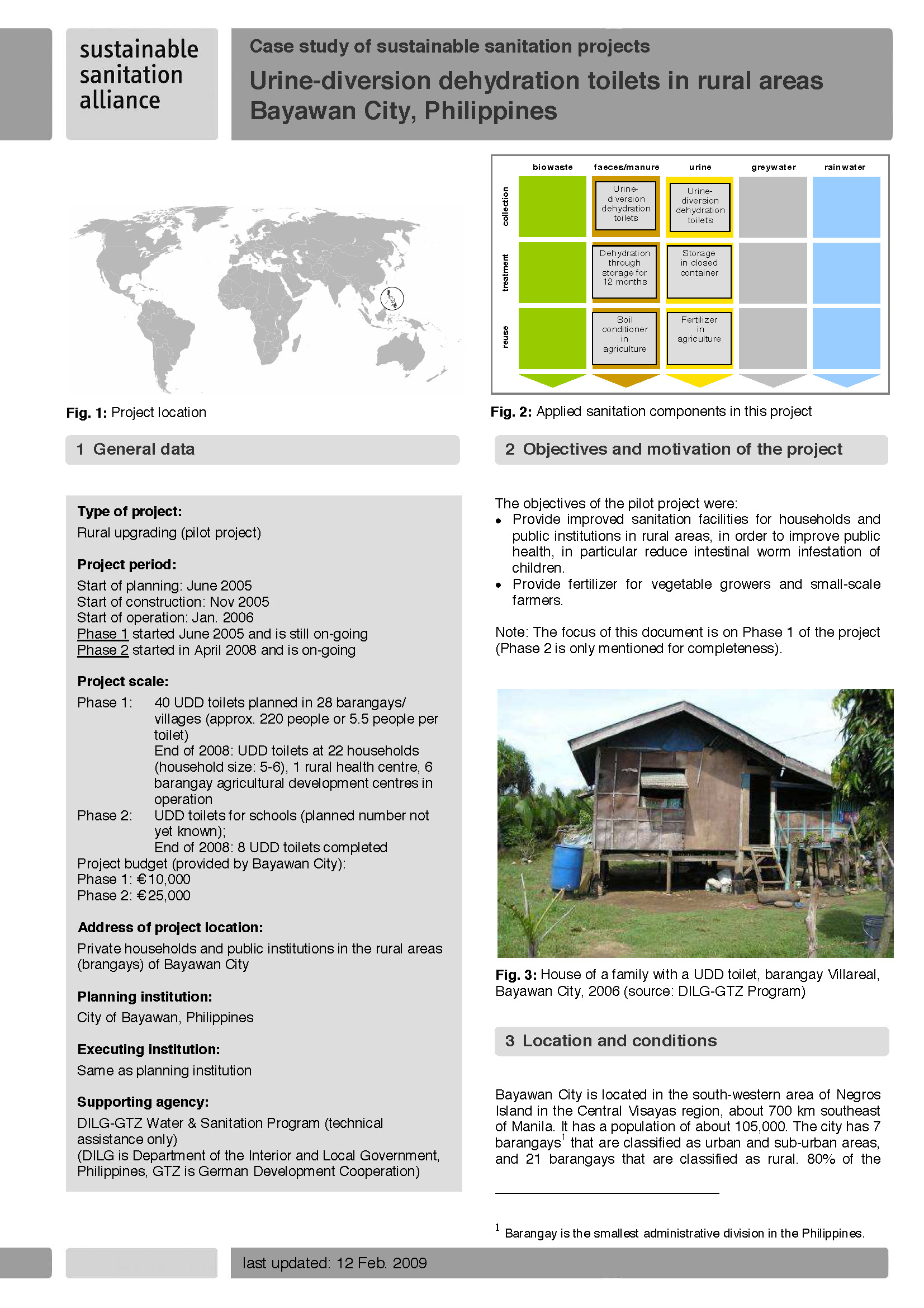Urine-diversion dehydration toilets in rural areas Bayawan City, Philippines - Case study of sustainable sanitation projects
Lipkow, U. (2009)

Published in: 2009
Publisher:
Sustainable Sanitation Alliance (SuSanA)
Author:
Lipkow, U.
Uploaded by:
SuSanA secretariat
Partner profile:
common upload
12314 Views
188 Downloads
Location of library entry
Content - Summary
This case study is about a rural upgrading pilot project in Bayawan City, Phillipines, where only 10% of the population are served with safe drinking water. Due to a lack of adequate sanitation for 37 % of households and 74 % of schools in Bayawan City water and food borne diseases, i.e. diarrhoeal diseases, are among the leading causes of morbidity. In addition more than 50 % of school children are affected by intestinal worm infections.
The aim is to provide improved sanitation facilities for households and public institutions in rural areas, in order to improve public health, in particular reduce intestinal worm infestation of children as well as to provide fertilizer for vegetable growers and small-scale farmers.
The implementation of Phase 1 and Phase 2 is in progress. By the end of 2008, 37 facilities had been completed: 22 in private households, 1 unit in a barangay health centre, 6 units in barangay agricultural development centres (BADC) and 8 units in 4 schools. Sanitation technologies applied are single- and double-vault urine diversion dehydration toilets (UDDT). The households were involved in the construction process by providing building material and assisting the construction workers in the construction of the toilets. Thus local people were trained in UDDT construction. All UDDTs have a poster with Do’s and Don’ts in picture format. However, households needed refresher training in operation, maintenance and reuse when the time between training and completion of their facility was too long.
The comprehensive monitoring of the GTZ program showed that most users and the city government prefer single vault UDDTs with mobile container (rather than double-vault UDDTs). The users state that it is more pleasant to use and maintain. For the city government the lower cost is an important advantage. Bayawan City allocated approximately € 10,000 for the first phase of the ecosan project. The budget included costs for the planning process, i.e. social preparation and construction costs for the substructures. The planning process (social preparation) consumed about 40% of this budget.
Bibliographic information
Lipkow, U. (2009). Urine-diversion dehydration toilets in rural areas Bayawan City, Philippines - Case study of sustainable sanitation projects. Sustainable Sanitation Alliance (SuSanA)
Filter tags
Case studies in SuSanA template East Asia & Pacific English Rural Urine Urine diversion dehydration toilets (UDDTs)














